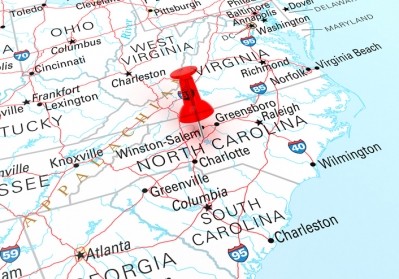Resilience and Harvard University launch five year R&D alliance

National Resilience is making a $30m commitment towards the alliance, funding research initiated by Harvard’s Office of Technology Development (OTD) focused on certain novel therapeutic and biomanufacturing technologies pioneered in university labs.
The alliance will give Resilience the opportunity to form new companies to drive these technologies into clinical development and commercialization. Meanwhile, a call for proposals will be launched to identify additional research projects to be funded at Harvard. Under the terms of the alliance, Resilience will receive an option to license technologies arising from funded projects.
Novel muscle stem cell therapies
The first anticipated spin-out from the alliance, Circle Therapeutics, will develop novel muscle stem cell therapies for a variety of skeletal muscle disorders.
In the Harvard lab of Lee Rubin, PhD, Professor of Stem Cell and Regenerative Biology, researchers have developed a means to culture millions of cells in vitro that behave like skeletal muscle stem cells (satellite cells), retaining their regenerative potential, for use in possible cell therapies. Resilience is now funding the lab’s continuing work on the platform, aiming to further validate it, in a project led by staff scientist Feodor Price, PhD.
Meanwhile, Resilience has formed an entity called Circle Therapeutics, anticipating that Circle may carry the technology forward under license.
Resilience was founded in 2020, promising a new business model after seeing COVID-19 expose shortfalls in supply chains and manufacturing. It aims to build a ‘sustainable network of high-tech, end-to-end manufacturing solutions with the aim of ensuring the medicines of today and tomorrow can be made quickly, safely and at scale’.
At inception, it had already raised over $800m of capital and secured 750,000 square feet of operating space.
It has acquired a 310,000 square foot plant in Boston, MA, from Sanofi; and, separately, a 136,000 square foot plant in Mississauga, Ontario. In May, the Government of Canada announced it would invest $199.2m CAD ($163.8m USD) in the company's Ontario-based subsidiary Resilience Biotechnologies Inc: with the aim of increasing capacity for vaccines and therapeutics.
In April, Resilience acquired Florida's Ology Bio, which came with more than 200,000 square feet of manufacturing and office space in Florida, California and Maryland.
“Our mission at Resilience is to make a new generation of complex medicines, such as curative gene therapies, lifesaving vaccines and immune system–boosting cell therapies more accessible to people in need,” said Rahul Singhvi, ScD, Chief Executive Officer of Resilience.
“Current biomanufacturing processes pose significant hurdles to making these medicines quickly, and at scale, which is why we are excited to work with researchers at Harvard to identify and develop the technologies needed to make this future a reality.”
Isaac Kohlberg, Harvard’s Chief Technology Development Officer and Senior Associate Provost, added: “This research alliance with Resilience will help support biomedical innovation at Harvard.
“Collaborating to both advance Harvard science and place arising technologies with dedicated new ventures, we can provide yet another valuable source of support and industry expertise to translational biomedical researchers across Harvard’s schools as they seek to impact human health for the better.”










